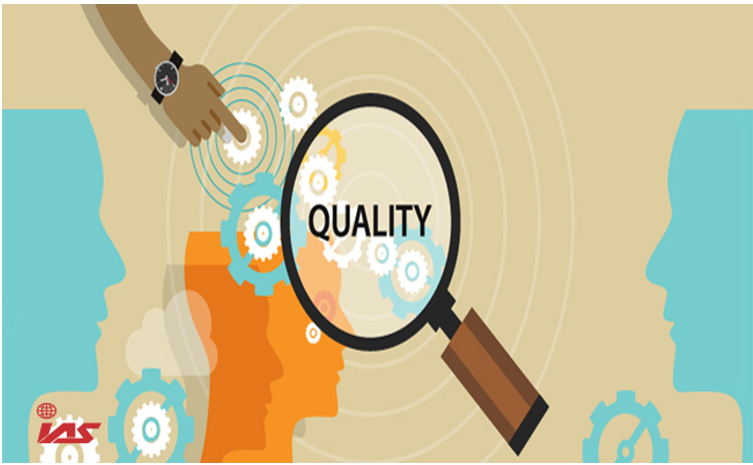
ISO 9001 internal auditor training plays a vital role in the establishment and maintenance of effective quality management systems. With organizations striving to deliver high-quality products and services while meeting customer expectations, ISO 9001 provides a framework for achieving these goals. The training equips internal auditors with the necessary skills and knowledge to assess and improve quality management systems, ensuring compliance with ISO 9001 standards.
ISO 9001 is an internationally recognized standard that sets out the criteria for a quality management system. It provides a systematic approach to quality management, focusing on customer satisfaction, continuous improvement, and the involvement of all employees. By implementing ISO 9001, organizations can enhance their processes, increase efficiency, and minimize risks, ultimately leading to improved customer satisfaction and organizational performance.
The primary objective of ISO 9001 internal auditor training is to develop competent professionals who can effectively audit and evaluate the organization's quality management system. Internal auditors play a crucial role in assessing conformity with ISO 9001 requirements, identifying areas for improvement, and promoting a culture of quality within the organization. Through training, internal auditors gain a comprehensive understanding of the ISO 9001 standard, its principles, and its application to various business processes.
ISO 9001 internal auditor training focuses on key concepts and requirements of the standard, such as customer focus, leadership, process approach, and continual improvement. It covers topics such as document control, risk management, performance measurement, and customer satisfaction assessment. By exploring these topics in-depth, internal auditors gain the knowledge and skills necessary to conduct effective audits and identify areas of non-compliance or opportunities for improvement.
Moreover, ISO 9001 internal auditor training emphasizes the importance of customer satisfaction and the role of internal auditors in evaluating the organization's ability to meet customer requirements. Internal auditors learn how to assess customer feedback, measure performance indicators, and identify areas for improvement to enhance customer satisfaction. This customer-centric approach enables organizations to build stronger relationships with their customers, understand their needs better, and continually improve their products and services.
In summary, ISO 9001 internal auditor training is essential for organizations seeking to establish and maintain effective quality management systems. It provides internal auditors with the knowledge, skills, and tools to assess conformity with ISO 9001 requirements, identify areas for improvement, and drive organizational excellence. By implementing ISO 9001 and investing in internal auditor training, organizations can enhance their quality management practices, exceed customer expectations, and achieve long-term success.
ISO 9001 is an internationally recognized standard for quality management systems. It provides a framework that organizations can follow to establish and maintain effective quality management practices. The standard sets out the criteria for a quality management system, focusing on meeting customer requirements, enhancing customer satisfaction, and continually improving processes.
ISO 9001 outlines a systematic approach to quality management, emphasizing the importance of process control, risk management, and evidence-based decision-making. It defines the requirements that organizations must meet to achieve certification and demonstrate their commitment to delivering high-quality products and services.
ISO 9001 is important in quality management as it provides a structured framework that organizations can use to ensure consistent delivery of products and services that meet customer expectations. By implementing ISO 9001, organizations establish clear quality objectives, define processes, and allocate resources effectively to achieve those objectives.
The standard emphasizes the importance of understanding customer requirements and striving to exceed them. It promotes a customer-focused approach to quality management, encouraging organizations to actively engage with customers, gather feedback, and continuously improve processes to enhance customer satisfaction.
ISO 9001 also emphasizes the need for a process-based approach to quality management. It requires organizations to identify and map out their key processes, monitor their performance, and implement controls to ensure consistent results. This helps organizations streamline their operations, reduce errors, and improve overall efficiency.
ISO 9001 is based on a set of key principles that guide organizations in achieving quality management excellence. These principles include customer focus, leadership, engagement of people, process approach, evidence-based decision making, and continual improvement.
The standard specifies several requirements that organizations must meet to achieve ISO 9001 certification. These requirements include:
Implementing ISO 9001 brings numerous benefits to organizations. It helps enhance customer satisfaction by ensuring that products and services consistently meet customer requirements. ISO 9001 also promotes operational efficiency, reduces waste, and improves overall productivity. The standard fosters a culture of continual improvement, where organizations constantly seek to enhance their processes and drive innovation.
Internal auditors play a crucial role in ensuring compliance with ISO 9001 requirements. They conduct internal audits to assess the effectiveness of the quality management system, identify non-conformities, and recommend corrective actions. Internal auditors help organizations maintain compliance with ISO 9001 and drive the continual improvement of quality management practices.
By conducting thorough audits, internal auditors provide valuable insights into the organization's processes, identify areas for improvement, and help management make data-driven decisions. They play a vital role in monitoring the effectiveness of the quality management system, ensuring that it remains aligned with ISO 9001 requirements, and supporting the organization in achieving its quality objectives.
In summary, ISO 9001 is a crucial standard for organizations aiming to establish effective quality management systems. It provides a framework for achieving consistency, customer satisfaction, and continual improvement. Internal auditors
The role of an ISO 9001 internal auditor is critical in evaluating and improving the effectiveness of a company's quality management system. Internal auditors are responsible for conducting independent and objective assessments to ensure compliance with ISO 9001 requirements and identify areas for improvement. Their primary responsibilities include:
ISO 9001 internal auditors should possess specific competencies and skills to fulfill their responsibilities effectively. These include:
This guest post was written by Kavitha G of IAS Certification [published on 27-Aug-2023]

Learn web development, Free Tutorials, Learn Skills!

Let's help your kids start coding, a baby step can make big difference in their future.
